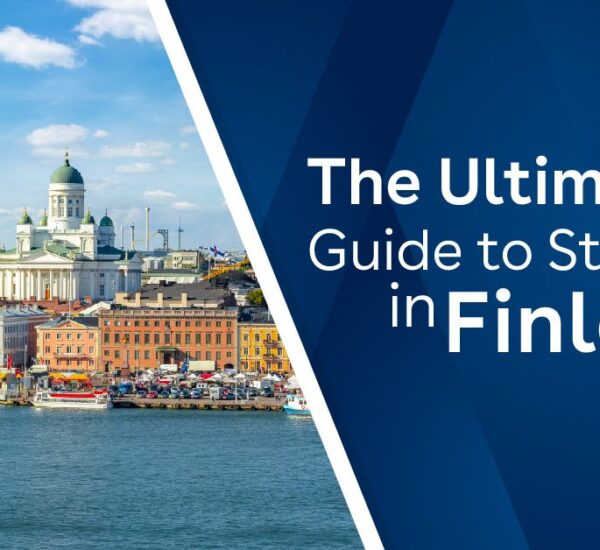When it comes to tuition-free education, few countries can compete with Norway. Known for its breathtaking fjords, high standard of living, and progressive society, Norway offers free education to international students, making it one of the most attractive destinations for higher education in Europe. Yes, you can study in Norway for free, even if you’re not from the European Union.
While public universities in Norway do not charge tuition fees—even for non-EU/EEA students—there are still some costs to consider. This article is a comprehensive guide to studying in Norway on a low budget, or even completely free, for international students. We’ll walk you through:
- Why choose Norway for higher education
- List of tuition-free universities in Norway
- Application process for international students
- How to study in Norway without IELTS
- Living costs and how to reduce them
- Scholarships in Norway for international students
- Visa requirements and much more!
🌍 Why Choose Norway for Higher Education?
Norway’s education system is globally renowned for its academic rigor, equality, and inclusivity. Here’s why international students choose Norway:
✅ Tuition-free universities for all students, regardless of nationality
✅ High-quality education and globally ranked universities
✅ Courses available in English at both undergraduate and postgraduate levels
✅ Safe, clean, and welcoming environment
✅ A unique blend of modern cities and natural beauty
These benefits make Norway one of the best countries to study abroad for free.
🏫 List of Tuition-Free Universities in Norway
Most public universities in Norway offer free education to international students. You may only need to pay a semester fee, usually between NOK 300–600 (about €30–€60), which covers student welfare services.
Here are some top tuition-free universities in Norway:
1. University of Oslo
The oldest and most prestigious university in Norway. Offers a wide range of English-taught master’s and PhD programs.
2. Norwegian University of Science and Technology (NTNU)
Known for engineering, technology, and natural sciences.
3. University of Bergen
A public university with strong programs in humanities, marine research, and medicine.
4. UIT – The Arctic University of Norway
Located in Tromsø, offers unique programs related to Arctic and environmental sciences.
5. Norwegian School of Economics (NHH)
A top-ranked business school with no tuition fees and several English-taught programs.
✅ Pro Tip: Always apply to public universities in Norway to take advantage of tuition-free education.
📝 How to Apply to Norwegian Universities
Step 1: Research Universities and Programs
Start by exploring programs that suit your academic background. Visit the official websites of Norwegian universities or search through the Norwegian Directorate for Higher Education and Skills portal.
Step 2: Meet Entry Requirements
These may include:
- Completed secondary education (for bachelor’s) or a bachelor’s degree (for master’s)
- Proof of English proficiency (IELTS/TOEFL or exemption)
- Academic transcripts
- Letter of motivation
- Letters of recommendation
- Passport copy
Step 3: Write a Winning Application
To maximize your chances, prepare a strong and unique application. Include:
A well-written Statement of Purpose (SOP)
Your academic achievements and awards
Letters of Recommendation from teachers or employers
Research experience if applying for a master’s or PhD
Any volunteer or extracurricular activities
🎯 Tip: Some universities have limited spots. Apply early and ensure all documents are correctly submitted.
📅 Deadlines for Norwegian University Applications
Application timelines vary but typically follow this schedule:
October – December: Applications open
December – March: Application deadlines for international students
April – May: Admission results
August: Semester begins
Check individual university websites for specific dates.
How to Study in Norway Without IELTS
You may be eligible to study in Norway without IELTS if:
- You are from an English-speaking country (e.g., USA, UK, Canada, Australia)
- You have completed previous education in English-medium instruction
- You can provide a letter from your previous institution stating that your education was in English
Some universities accept the following alternatives:
- Duolingo English Test
- TOEFL iBT
- Cambridge English Tests
✅ Pro Tip: Check the specific English language requirements for each program as they vary by university.
💰 Cost of Living in Norway for International Students
While tuition is free, Norway is known for its high cost of living. Here’s a monthly breakdown:
| Expense | Estimated Cost (NOK) | Estimated Cost (USD) |
|---|---|---|
| Rent (shared accommodation) | 4,000–6,000 | $370–$550 |
| Food | 2,500–4,000 | $230–$370 |
| Transport | 500–750 | $45–$70 |
| Miscellaneous | 1,000 | $90 |
Total Monthly Cost: NOK 8,000–12,000 ($740–$1,100)
Total Annual Cost: Approx. NOK 100,000–120,000 ($9,200–$11,000)
🎓 Scholarships in Norway for International Students
Even though education is free, several scholarships in Norway can help cover living expenses:
Erasmus+: For exchange students from partner institutions in Europe
NORPART Scholarships: Funded by the Norwegian government for partnerships with developing countries
Quota Scheme (Discontinued but replaced by local aid)
University-Specific Scholarships: Check each university’s website for internal funding opportunities
📑 Visa Requirements for Studying in Norway
To study in Norway for more than 90 days, you must apply for a student residence permit.
Requirements:
- Acceptance letter from a recognized university
- Proof of sufficient funds (around NOK 137,907 per year)
- Valid passport
- Health insurance
- Completed application form and payment of fee (~NOK 5,900)
Apply through the Norwegian Directorate of Immigration (UDI) or your nearest Norwegian embassy.
🎉 Student Life in Norway
Highlights of studying in Norway:
Access to world-class libraries, laboratories, and research centers
Vibrant student communities in cities like Oslo, Bergen, Trondheim, and Tromsø
Opportunities for part-time work (up to 20 hours per week)
Hiking, skiing, Northern Lights—Norway is a paradise for nature lovers
📚 Best Programs to Study in Norway
- Engineering
- Natural Sciences
- Environmental Studies
- Business & Management
- Data Science
- Marine Biology
- Arctic Studies
Most of these are offered in English, especially at the master’s and PhD level.
❓ FAQs – Study in Norway for Free
Q1: Is education in Norway really free for international students?
Yes! Public universities do not charge tuition fees—even for non-EU students. Only a semester fee applies.
Q2: Can I study in Norway without IELTS?
Yes. You can be exempted if your previous education was in English or you’re from an English-speaking country.
Q3: Can I work while studying in Norway?
Yes. Students can work 20 hours per week during studies and full-time during holidays.
Q4: Is it expensive to live in Norway?
Living costs are high, but many students manage through scholarships, part-time jobs, and budgeting.
Q5: Are there English-taught programs in Norway?
Yes. Over 200 master’s programs and several bachelor’s programs are offered in English.
🔚 Final Thoughts
Choosing to study in Norway for free is a life-changing decision. With its tuition-free public universities, stunning landscapes, and high standard of education, Norway has everything a student could ask for. Although living costs are higher than in other countries, they can be managed with careful planning, budgeting, and possibly a part-time job or scholarship.
If you’re dreaming of quality education without the burden of tuition fees, Norway is your best bet.


